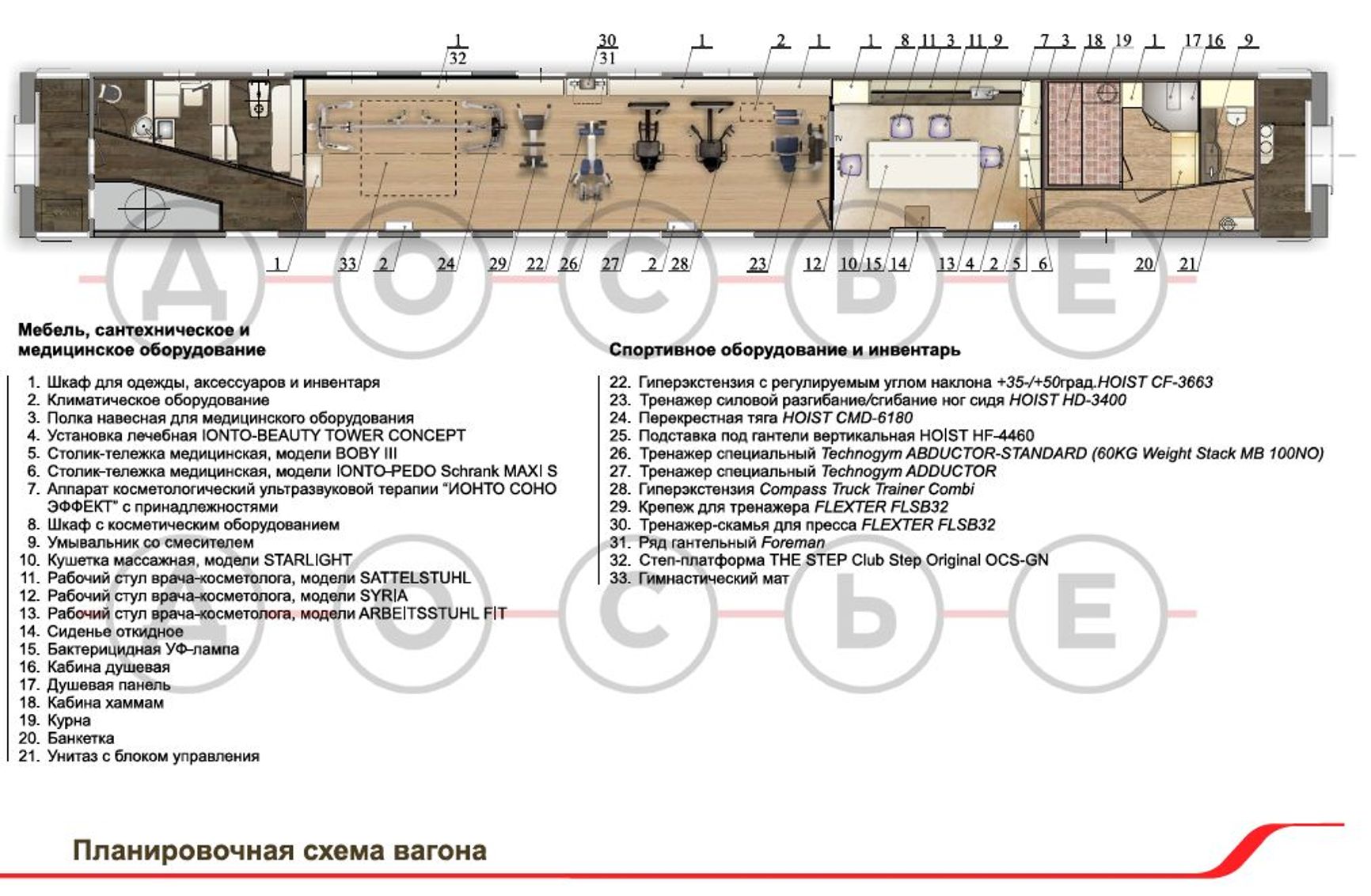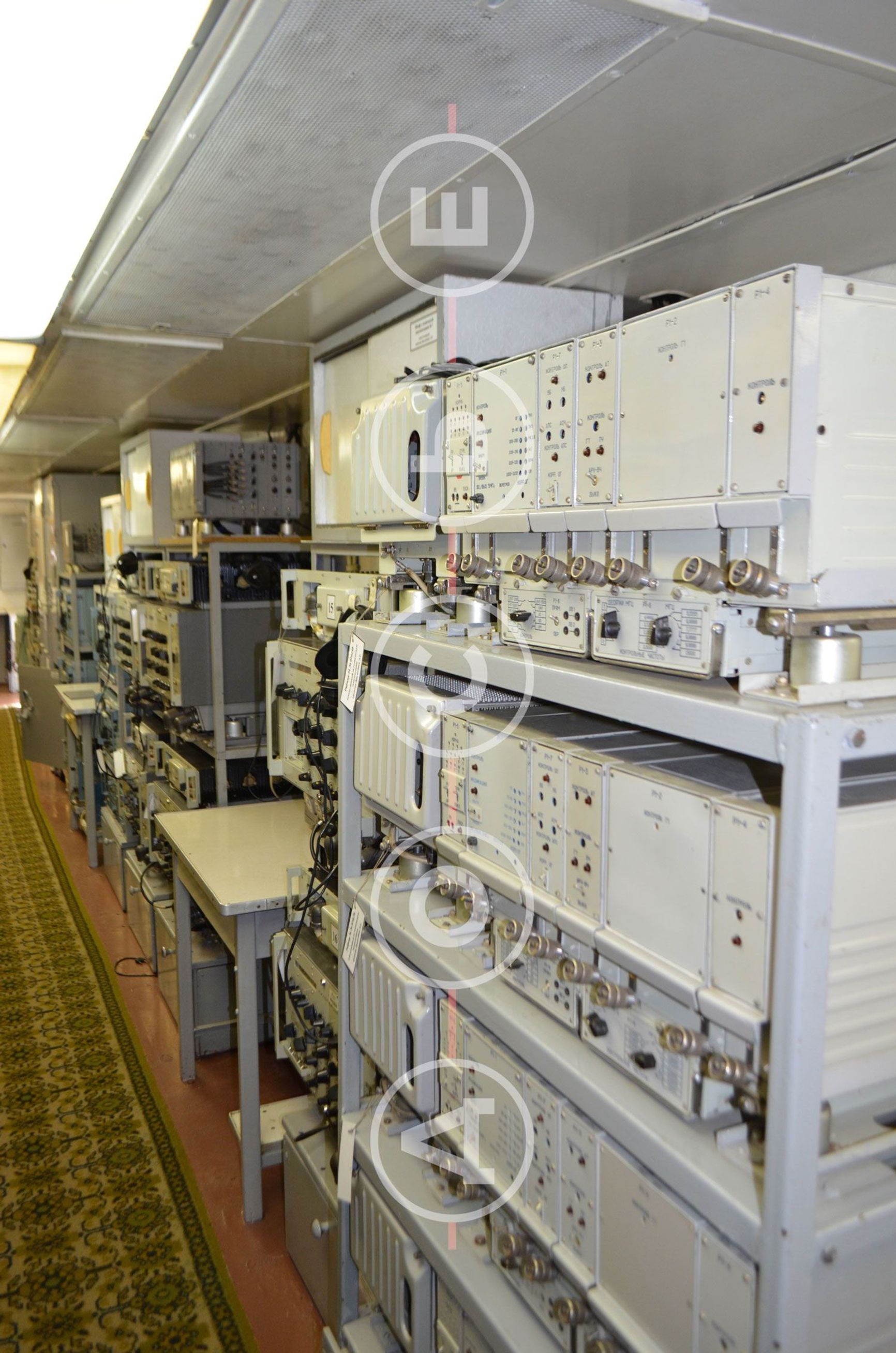
A joint investigation by the Dossier Center, CNN, Süddeutsche Zeitung, Westdeutscher Rundfunk, and Norddeutscher Rundfunk has uncovered that the armored train used by Vladimir Putin will cost Russia’s government budget a minimum of 6.8 billion roubles ($75 million). The investigation studied documents from the Federal Protective Service (FSO), Russian Railways, and associated state-owned companies. Zirkon Service, which carried out the project, equipped the “chief passenger” carriage (a term the company's CEO Vladimir Lulaev uses to address Vladimir Putin) with a hammam – and even a beauty parlor. The company also has plans to build cars that contain a bar, lounge, and multimedia center.

The investigation studied close to 25,500 Zirkon Service documents, provided to the Dossier Center by an anonymous source. The publication confirmed their authenticity. Zirkon Service is responsible for maintaining Putin's armored train.
The investigation revealed that Zirkon has been working on a dedicated sports and fitness car for the president in recent years. The directive to construct a car for the «chief passenger» was given by the head of Russian Railways, Oleg Belozerov, in March 2017, with approval from the FSO leadership.
Armored beauty parlor
According to the investigation's findings, Putin's sports and health cars include facilities such as a cosmetologist's office, a gym, and even a Turkish bath (hammam). The cosmetologist's office is equipped with essential medical apparatus for emergency life-saving treatment:
- Carina Drager machine for artificial lung ventilation,
- Atmos aspirator for upper airway sanitation,
- Defigard defibrillator,
- B. Braun Space Infusomat (allows to measure and administer the exact dose of medication to a patient),
- Infinity M540 patient monitor (for monitoring vital signs during anesthesia, ventilation, and more).
The “chief passenger” compartment features equipment like a radiofrequency lifting device, an Ionto Beauty cosmetology unit, an Ionto Sono unit for ultrasound therapy, a Luxo Circus magnifying lamp, and more, Dossier notes. These tools enable skin rejuvenation through high-frequency radio waves, vacuum cleaning, iontophoresis (to boost collagen and elastin production), disinfection (to clear pores from dirt and comedones), micro-massage, and lymph drainage.
The cosmetology room is wiretap-proof, as it is equipped with “devices preventing the leaks of acoustic information.”
The train also includes a gym with different kinds of sports equipment, such as an abs bench, hyperextension devices, a step-platform, tatami mats, a gymnastic mat, and dumbbells weighing up to eight kilograms. However, there are no bench press bars, nor are there bars for deadlifts and squats.
Science institute solves TV issue
According to Dossier, the problem for Zirkon was the installation of TVs — despite their cost (embedded Mirror Media units cost 1.2 million rubles), the TVs lose signal when the train passes under bridges or near tall buildings, as the antenna gets shaded. To solve the problem, specialists at the Moscow Research Institute of Radio Communications had to develop their own buffering system, so that Putin wouldn't have to wait for several minutes for the signal to return.
“Russian television is a mandatory requirement in preparing a residence for the president's visit,” FSO captain Gleb Karakulov, who fled the country, told Dossier. “A residence is an abstract notion – it could be a hotel room or a guesthouse. In preparation [for Putin’s arrival], there’s a requirement that the location broadcast Russian channels, like Rossiya.”
Quarantines in shifts and obsolete communication equipment
According to Karakulov, the FSO is responsible for the continuous maintenance of the train, requiring a standby crew at all times. However, this presents a challenge, as each crew member has to regularly undergo quarantine. To address this, the crews quarantine in shifts, with one crew replacing the other.
Karakulov also mentioned that there had been a persistent problem with the FSO's outdated encrypted radio communication equipment. Despite repeated requests, no efforts were made to replace it for a long time, said the former officer.
“We had one satellite terminal operating with a single channel at 4.8 kilobits per second, and another with four channels providing a maximum of 9.6 kilobits per second. There was also another terminal that could offer slightly less than a megabit – if resources allowed. These terminals became outdated long ago. After considerable effort, we were able to get through to management, and only in 2021 did we start getting modern satellite terminals that offer speeds in the multiple-megabit range.”

Armor
According to Dossier, the available paperwork does not have any information on the protection of the rail cars Putin uses for holding meetings and resting. However, there are details covering the reinforcement of the walls, windows, doors, and vestibule windows in the compartments.
The armor class specified is no lower than BR4, which can offer protection against gunfire from weapons like the Kalashnikov assault rifle (such as the AK-47 or AKM) or the Dragunov sniper rifle, as noted by the publication. The documentation also mentions the possibility of installing holes for defensive return fire.
More luxury cars on the way
According to Dossier, Zirkon is currently engaged in another project for Putin. Alongside the health and sports car, there are plans to attach a “multimedia center” to the armored train. A memorandum addressed to Sergey Kobzev, the deputy general director of Russian Railways, outlines an estimated project cost of 405.5 million roubles ($4.47 million).
Zirkon is also in the process of preparing two luxury cars, one featuring four compartments and a bar, while the second will have six compartments. The combined approximate price for both cars amounts to 557.86 million roubles ($6.15 million).
The company also plans to build two dining cars with special communications, “a coupling of two service cars” for resting and holding meetings, and a lounge car for 490.9 million roubles ($5.43 million). All in all, Vladimir Putin's special train will cost Russia’s government budget at least 6.8 billion roubles ($75 million), concludes Dossier.
Zirkon Services was not available to answer Dossier's questions.
In response to an inquiry by CNN, the Kremlin denied the existence of Putin’s sports and recreational car.